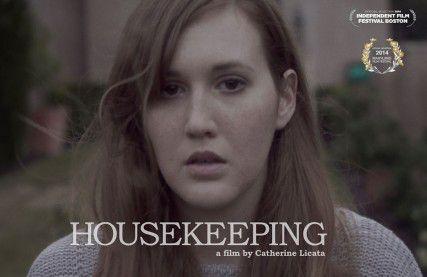Dreams about fear might entail the typical standing-naked-in-front-of-a-crowd scenario or falling from great heights. But what about the dreams where real-life worries slip from daytime into sleep?
A recent LA Times article suggested that recession-related dreams are on the rise among adults. But it’s not just adults who are tossing and turning: many Boston University students, faced with a tight job market and rising academic competition, reported a similar increase in dreams about academic failure or shaky job security.
The January article “Recession-related dreams on the upswing,” explored the idea that that the financial concerns Americans have faced in recent years may be leading to recurring dreams about uncertain economic futures. Working- and middle-class Americans gave accounts of their fears of foreclosure, job loss and other financial concerns.
CREATING THE WORLD OF THE DREAM
Deirdre Barrett, a psychologist who teaches at Harvard University Medical School and edits the predominant dream-related journal “Dreaming,” told the L.A. Times that such dreams are bound to occur.
“We dream about what concerns us when we’re awake,” she said. “In bad times [for adults], that is likely to be about financial security.”
According to the article, recent studies have shown that during rapid eye movement sleep, which is the stage of the sleep cycle when most dreams occur, the visual cortex is more active. Meanwhile, the brain experiences less activity in the prefrontal area, where planning, conventional assumptions and censorship surface. As a result, the brain may conceive new ideas or images about everyday concerns.
Over the past decade, the phylogeny department at BU has conducted various studies regarding the evolution of sleep. One of these studies claimed to have found “fairly abundant evidence that dreams do involve serious emotional work” and that the experiments found “part of this emotional work accomplished in the dream may have involved the contextualizing of emotional stress via specialized images.”
CLOSE TO HOME
Students at colleges such as BU may deal with a number of stressors, including securing jobs or internships, academic performance and relationships. The 2010 Healthy Minds Study, a national survey focusing on college students’ mental health, highlighted schoolwork and lack of money as the top source of students’ stress in college.
“I dream a lot about failing an exam or forgetting to hand in a paper,” said Priyanka Kotadia, a College of Arts and Sciences senior. “I have a recurring fear of not showing up for an exam and then not being allowed to take it.”
For other students, dreams may focus on stress outside of school, related to work or extracurricular activities.
“Maybe it’s just because I am the type of person who stresses about things, but I remember I used to have a lot of dreams about work,” said Marlena Brdar, a College of Engineering freshman. “I used to work in the fast food industry, so I had to make sure [I was prepared]. One of the things I needed to make sure of was that I wore my uniform to work. I dreamt a lot that I came in wearing the wrong uniform, or that I didn’t have it on.”
At the moment, Brdar says her main concern is her performance in calculus.
“Math is my hardest subject. Before a calc exam, I’ve either dreamt that I got the test back and I aced it, or that I just completely bombed it.”
DREAMING EASY
However common stress-related dreams may seem, it is not something that all students said they experience, or at least not to the same degree.
“I wouldn’t say I’ve had too many hardcore stress-related dreams,” said Taylor O’Brien, a School of Management senior.
O’Brien, who has a job lined up for after he graduates in the spring, said he has had fewer stress-related dreams lately. In spite of whatever stress he may feel, he said he rarely dreams about academic or financial concerns.
“I’ve had dreams about Model United Nations,” O’Brien, a member of the BU International Affairs Association, said. “There are a lot of stressors there. They’re mostly administrative and organizational concerns, though.”


















































































































